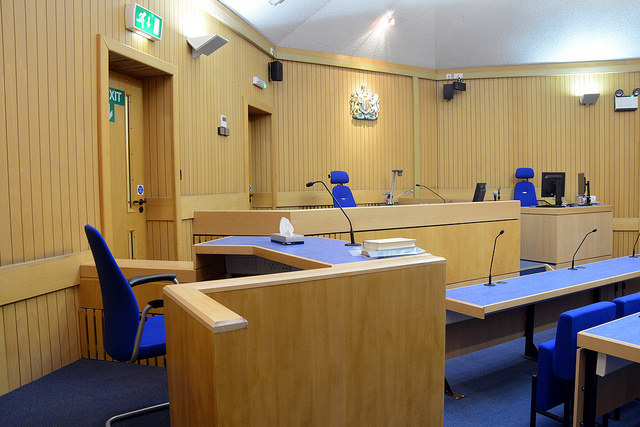A lot of people file for a restraining order in New Jersey, and often they ask, “do I really need a lawyer for this?” It’s a legitimate question. In New Jersey, a temporary restraining order is very easy to get. But within the next few weeks, you will be back in court where a hearing will occur in order for the court to determine whether that easily-obtained temporary restraining order should become permanent. Those hearings are not so easy to win in many cases and a lawyer is definitely recommended – even if you have a great case.
But first, here is some brief background on the process: A person who believes they are the victim of domestic violence would file a Complaint for a restraining order, either through the local municipal court (typically right around the time that police are called for an incident) or by going to the county court (typically if police were not called or a complaint was not filed that same day). If there is a well-founded suspicion that the defendant committed one of the acts of domestic violent that is listed in the statute, the judge will grant a temporary restraining order. Within 10 days, everyone is back in court so that the judge can have a full hearing to determine if the defendant committed a predicate act of domestic violence and if the plaintiff needs a final restraining order to protect against future acts of domestic violence. The plaintiff needs to prove their case by a preponderance of the evidence, which means more than 50%. This is a lower standard of proof than what you would see in a criminal case, which is beyond a reasonable doubt.
Many people think that they have a fantastic case and that they will likely win. And I see this sentiment on both sides. I see plaintiffs who are certain that a judge will believe everything they say and of course grant a final restraining order. I’ve seen defendants who say that the plaintiff is a complete liar and think that the judge will of course recognize this. But people are often wrong about their view of the evidence.
In my experience, these restraining order cases are all over the place as far as results go. I’ve won cases that I was sure I would lose. I’ve lost cases that I was sure I would win. I’ve seen judges consider certain acts that are clearly illegal as being “no big deal” because no one was hurt and dismiss the complaint. I’ve seen judges listen to a crying plaintiff and essentially ignore everything presented by the defendant – no matter how compelling – and finalize the restraining order. And I’ve seen judges on many, many occasions listen to the plaintiff, then the defendant, and then just say, “well, it’s a he-said-she-said and I can’t decide who is right so the restraining order is dismissed.”
The reason for this is the reality that the judge listens to the evidence and then makes a decision about how that evidence is interpreted. This is, therefore, a very subjective process, especially when the judge needs to consider whether something is or is not harassment, stalking, a threat, etc. Therefore, even if the plaintiff or defendant is absolutely positive that they will win the hearing, they should still talk to an attorney – absolutely nothing in this area of law is a sure thing!



